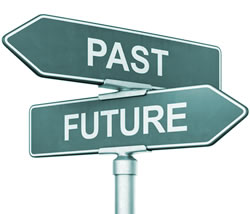 Social business means many things to many people. When defining it, in general there are four groups of definitions and views: a social technology dimension, a social/behavioral perspective, a process and management view and, finally, a ‘human’ dimension. Without taking into account the original definition, which had nothing to do with social technologies, the principles of social business are not new. Yet, it certainly hasn’t reached it full potential despite quite some debate about definitions and even some blog posts announcing the death of social business in recent times.
Social business means many things to many people. When defining it, in general there are four groups of definitions and views: a social technology dimension, a social/behavioral perspective, a process and management view and, finally, a ‘human’ dimension. Without taking into account the original definition, which had nothing to do with social technologies, the principles of social business are not new. Yet, it certainly hasn’t reached it full potential despite quite some debate about definitions and even some blog posts announcing the death of social business in recent times.
These discussions were quite amazing if you realize that many dimensions of social business are still to be discovered in most organizations. But, then again what’s new? We love to look so much at the theory behind terms such as social business instead of looking at what really happens in organizations and their ecosystems.
When social media marketing started booming a few years back (realizing social media and marketing are just small, be it rather visible and well-known parts of what we call social business), some people who had profiled themselves as experts in the social media craze, quickly started shouting things such as ‘email marketing is dead’. It led us to launch a blog on the – back then controversial – idea that channels such as email and social media simply complement and strengthen each other, not because of their own nature but because people decide when and where they want to entertain themselves, find information and connect/interact.
That human behavior is by nature channel-agnostic and integrated/connected marketing is the logical answer to that simple finding. And so it seems also obvious that “new” (well, not really) marketing phenomena such as social media marketing and the omnipresent content marketing (indeed, not new either), connect, overlap (think about the obvious overlap of social and content) and often are merely terms used to turn the increasingly complex marketing reality in one of simple labels (even if they are complex to realize successfully). Such views aren’t adapted to a fully customer-centric approach, based on valuable interaction across touches and touchpoints.
Revisiting the network economy: a human economy of information and experiences
The network economy – a partial but essential driver of social business or digital business or whatever you want to call it – is one of decentralized, people-centric integration and reality is never black or white. Nothing has died yet. Email hasn’t (on the contrary), blogging hasn’t, SEO hasn’t, social media marketing hasn’t (those announcing it failed to have a clear strategy in most cases and were using it as just another advertising channel). The blog I mentioned makes no sense anymore since the idea of integration starts becoming widespread by now. At least in theory, in practice we see businesses struggling with silos and disconnected processes and systems. Furthermore, budgets are still allocated the traditional siloed.
Marketers keep focusing on the channels themselves and businesses are unable to embrace what we now call a ‘social business’ world with ‘connected and empowered consumers’. This remains true for social in a marketing context. For social business in the broad sense, it’s amazing to see how we look at it as “a thing” or even use it as a name for a “new kind of business” instead of looking at the forces and different business, human and management realities behind it.
Many businesses still essentially have no clue at all what to do with these evolutions. Lack of strategy and too much focus on terminology and vendor viewpoints instead of reality in and around the enterprise? If you look at the reality of social media in marketing (again, just a piece of a very broad puzzle), most organizations even still don’t know how to deal with consumers who connect in other ways and who question what they do in a public way. They are often clueless regarding the organizational and cultural impact of connected technologies (yes, social business is about technology and IT too) and shifting consumer behavior. We are clueless about the power shifts towards the customer, towards people. We are too often clueless about what digital transformation really means.
The network economy is about people and information, about how technology shapes community, connection and empowerment, and – vice versa – about how community, connection and empowerment shape the adoption and even development of technology, bringing together ever more components and stakeholders in a vast digital/social ecoystem.
Social business isn’t dead. It’s just really beginning and at the same time part of something far broader with strong roots in the past that show the future. And when looking at things into context we should know that. Especially people with an all-round view on how technology, information, consumer behavior, work, IT, business, marketing, society and so much more are changing in an integrated way have a role to show what can be done and is still to come, especially if they’re practitioners too. Many of the “xyz is dead” messages are unfortunately based on a narrow focus on a specific business function, technology, channel, evolution and so much more. And many are also born in mere theoretical reflection.
Social business and digital transformation: logical evolutions
The social evolutions and technologies driving what we now call social business (and soon something else, post-digital business some call it already) are not new. And they’re not going to go away. They are a natural consequence of changes that have been going on for years. The emergence of social networks, social media, social business and social platforms is logical. It has been predicted and described since many years. We have failed to listen and haven’t taken the effort to study the evolutions that new technologies would bring with them. It’s one of the reasons we’re advocates for continuous learning. If you don’t follow the REAL evolutions in the world out there, in areas such as technology, economy, sociology and even psychology, you are basically ignoring your business reality and your customers. Or we fail to see things in context. Or all that and more.
What we see happening today is a logical evolution from connecting information (remember hypertext?) to connecting people (and now to connecting data, ‘objects’ with the Internet of Things, well, everything, really) occurred. And we know the next step is the inclusion of ever more artificial intelligence into ever more connected spheres.
Our ignorance and unpreparedness shows the need of businesses to invest in trying to understand fast changing evolutions in a real-time era. We knew that technologies would have disruptive effects. We knew. We just didn’t listen. And we always seem to focus on the technologies and tactics first, next on value, purpose, strategy and human dimensions (look at how the debate about Big Data is evolving or how in, let’s say, content marketing, we finally start looking at the bigger picture, the context) and finally at the reality and even ethics. I guess that’s why we have Hype Cycles. Unfortunately we don’t look at practice enough either.
New rules for the new economy: where are we?
Let’s look at some random examples of how far back we can go to understand today’s and at the same time tomorrow’s evolutions.

After having published part of it in a Wired magazine article, Kevin Kelly, wrote his book ‘New Rules for the New Economy: 10 Radical Strategies for a Connected World”. Noticed the word ‘connected’? It was a best-seller. We are talking about 1998 here. That’s 16 years ago. Many social media experts were still teens but today’s managers were not. Kevin wrote about the power of decentralization, about how the Net rewards generosity and so much more. He, and other authors, explained how the network economy would change our ways of doing business and predicted the emergence of social networks and communities.
Why does it take so long for managers to realize even today, when their customers and employees are using social and digital tools beyond their control, social media and the realities behind it is not going to go away (if it’s done well) and that we’re moving towards even faster digital and social realities? Why have many of them not even started looking at the basics of all these phenomena? You can close your eyes and hope something will dissapear but that seldom happens, does it? Sure, we’re still in so many early stages of some hype cycles but not seeing what’s happening without the hype is ignoring reality. Not seeing what’s coming next (again, despite the actual or future hype) is ignoring the reality of tomorrow as it starts today.
Here are some quotes from this 16-year old book, that will make you understand why I keep being surprised by the slowness in organizations, especially as ‘speed’ (the “velocity” or Fast Data dimension of Big Data, the speed of some real-time evolutions, the speed at which people embrace digital technologies), etc. becomes more and more important:
- “The only factor becoming scarce in a world of abundance is human attention.”
- “To reach ubiquity, you need to pass through sharing.”
- “The prosperity of a firm is directly linked to the prosperity of its network.”
- “Because information trumps mass, all commerce migrates to the network economy.”
- “Letting go at the top is not an act against perfection, but against shortsightedness.”
- “The central economic imperative of the network economy is to amplify relationships.”
- “Firms that encourage customers to talk to each other, to form affinity groups and hobby tribes, will breed smarter and more loyal customers while creating smarter products and services.”
I can go on. Again, Kevin’s book was a best-seller. Few businesses seem to have actually done something with it. The changing paradigms were described by several management and business authors as well.
What have we learned? Opening our eyes
In “The Death of Distance: How the Communications Revolution Is Changing Our Lives?”, written in 1997 (there was an update in 2001), Frances Cairncross wrote how consumers would be able to develop new relationships with companies, if they want to. She explained how customers could be involved in the development of products and thus become partners in the creative process of innovation. Collaboration and co-creation, the number one exponents of social business, now almost….17 years ago.

In 1998, Esther Dyson published “Release 2.1“, among others motivating us to contribute to the communities we love or to build our own ones and to understand the capability of the Net for genuine, two-way interaction. Sounds familiar too, doesn’t it?
Here is one that everybody knows: “The Cluetrain Manifesto” (2000): markets are conversations, the Net enables us to have these conversations in new ways. Valuable and personal conversations in a human voice. Not for the sake of them but because we need to think differently about markets again.
Ram Charan, one of my favorites and author of, among others, ‘What the CEO Wants You to Know : How Your Company Really Works‘ and ‘What the Customer Wants You to Know: How Everybody Needs to Think Differently About Sales‘, in the latter book, wrote ‘Someday, every company will listen more closely to the customer, and every manager will realize that sales is everyone’s business, not just the sales department’s“.
All these ‘pioneers’ are less known than the ‘influencers’ most of us know today. But they are more than worth a revisit. There isn’t a single evolution – including recent realities that are hyped – such as content marketing or Big Data that weren’t well described over a decade ago. So look at them now. Your customers won’t wait a decade.
Have we started contributing yet? Or listening? Have we started seeing business as…everyone’s business? Social business? Integrated business? Connected business? Digital business? Just business as it has to be?
Of course, reading books is not a must and many of the predictions or opinions in books are wrong. To be honest, I read very little myself since the end of the nineties, books at least. However, trying to understand what changing paradigms will mean to your business, and customers is a must. It’s your job to keep learning every possible way you can and to take away the lessons that make your organization more customer-centric, profitable and ready for the future.
We could have been ready for the whole social media marketing and social business phenomenon a decade ago if we invested more in learning and understanding what was happening. It’s our duty to do that, dear managers. Continuous learning: by listening to our customers and the market.
And by understanding the meaning of digital technologies and how they are used, something all managers and marketers will have to do right now if they still want a job in a few years. Because, looking at the ongoing digital evolutions and their impact on business and society, it’s clear we are still in the digital prehistory when looking on the very long term. So let’s start looking at the past, present and near future at least, without closing our eyes.
And now… one for the future
Here is a final one for those who want to take a deeper peek into the future looking back at some ideas going explained in a book that’s the oldest in the list of books I already mentioned (don’t read this if you’re just interested in business). This time it’s European, French to be precise. And if you ever heard or saw Ray Kurzweil speak, you might recognize some things, regardless of where you stand on the ‘technology optimism/pessimism’ debate.
In 1999, I talked a few times with Joël de Rosnay. Joël is, among many other things, a French biologist and futurologist. In 1995 he wrote a book, called “L’Homme symbiotique”. The company I was working at, translated it in Dutch. There is also an English version.
When I interviewed him, he explained how he thought people would become part of an ecosystem, a network of human and other beings, technology, nations, computers and much more that would ultimately become some kind of global super organism which he called ‘the cybiont’.

According to de Rosnay, we were standing at the verge of a revolution whereby we would evolve towards this planetary super organism. For him, it was the inevitable next step in the survival of our species. We moved from cells to organisms, from organisms to populations, from populations to ecosystems and next to the planetary super organism. In it would be all human beings, organism, machines, networks and even nations. It wasn’t a denial of the free will of the human being, which de Rosnay rather saw as the facilitator of the cybiont and the shaper of the form it would take. His plea was one for a less ego-driven and more symbiotic world of participation.
His vision, which has been both applauded and criticized, for me overvalued the role and potential of human beings in the ecosystem called earth. And I doubted if technology would be used to reach this ideal. Now you know where I stand in that ‘ethics of technology debate’: somewhere in the middle.
Analytical thinking and complex systems thinking can both work together to look at reality from various viewpoints. It’s important to understand the interaction of each organism, the relationships it has and the living ‘whole’ ecosystem. However, I shared Joël’s views on the coming of an era in which people would become part of a network that connected us all, be it from a different angle. I also shared his view on the coming of “the Internet of immaterial things”, which is now becoming a reality (and since 1995 – being nearly 20 years – almost EACH YEAR has been added to lists of “predictions for next year”, as again for 2014.
But most of all I believe that we form the social networks and are the social networks. However, at the same time we fight the social dimension and the survival of the ecosystem, and the homeostasis since we want to do more than survive in symbiosis. We could say de Rosnay, as many others, predicted what we are seeing today and call the social media revolution. It has a profound impact on the ecosystems we call organizations and on the individual organism.
Again: let’s start looking at the past, present and near future at least, without closing our eyes. And have a strategy – that works – for everyone and everything.

